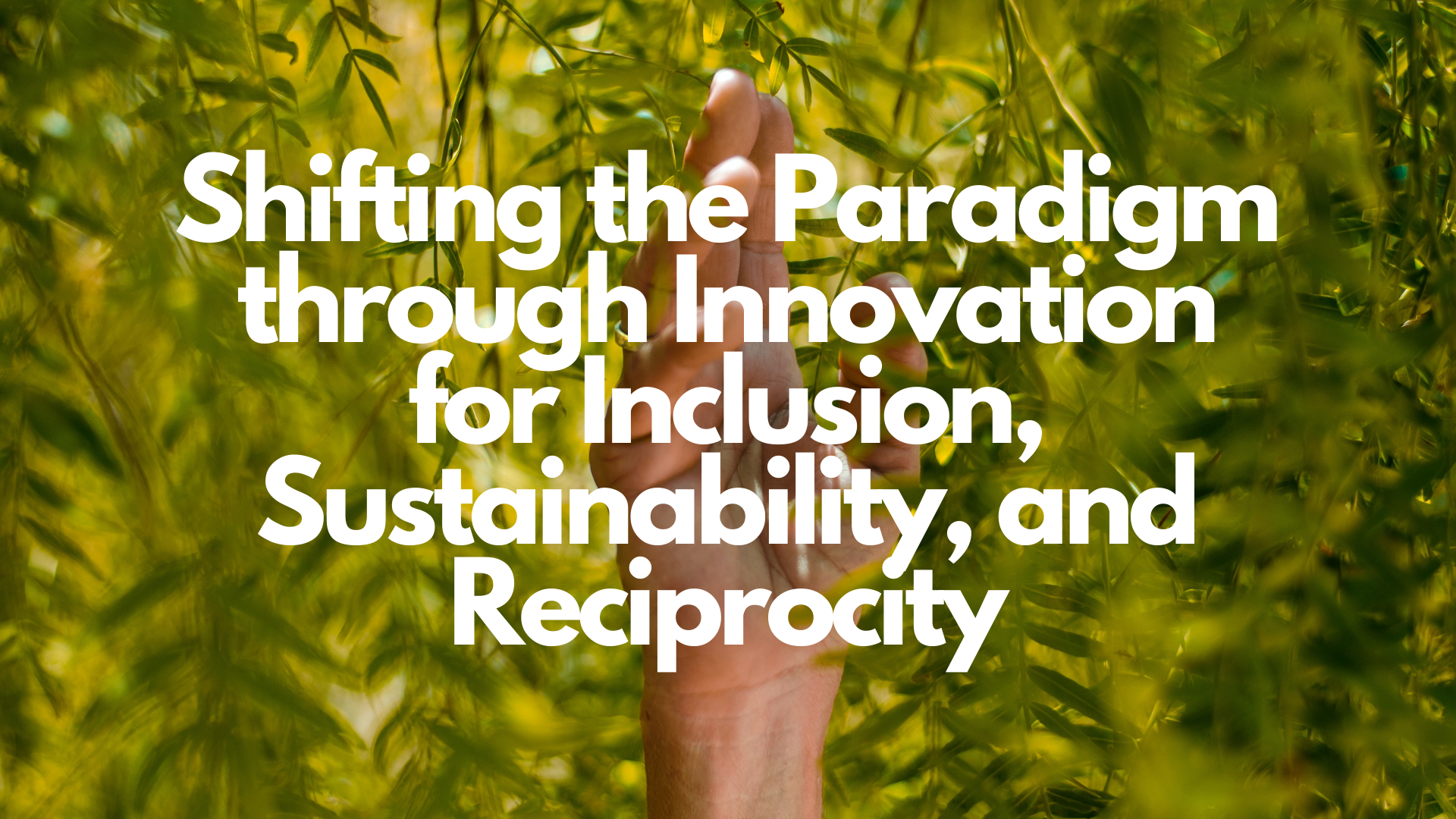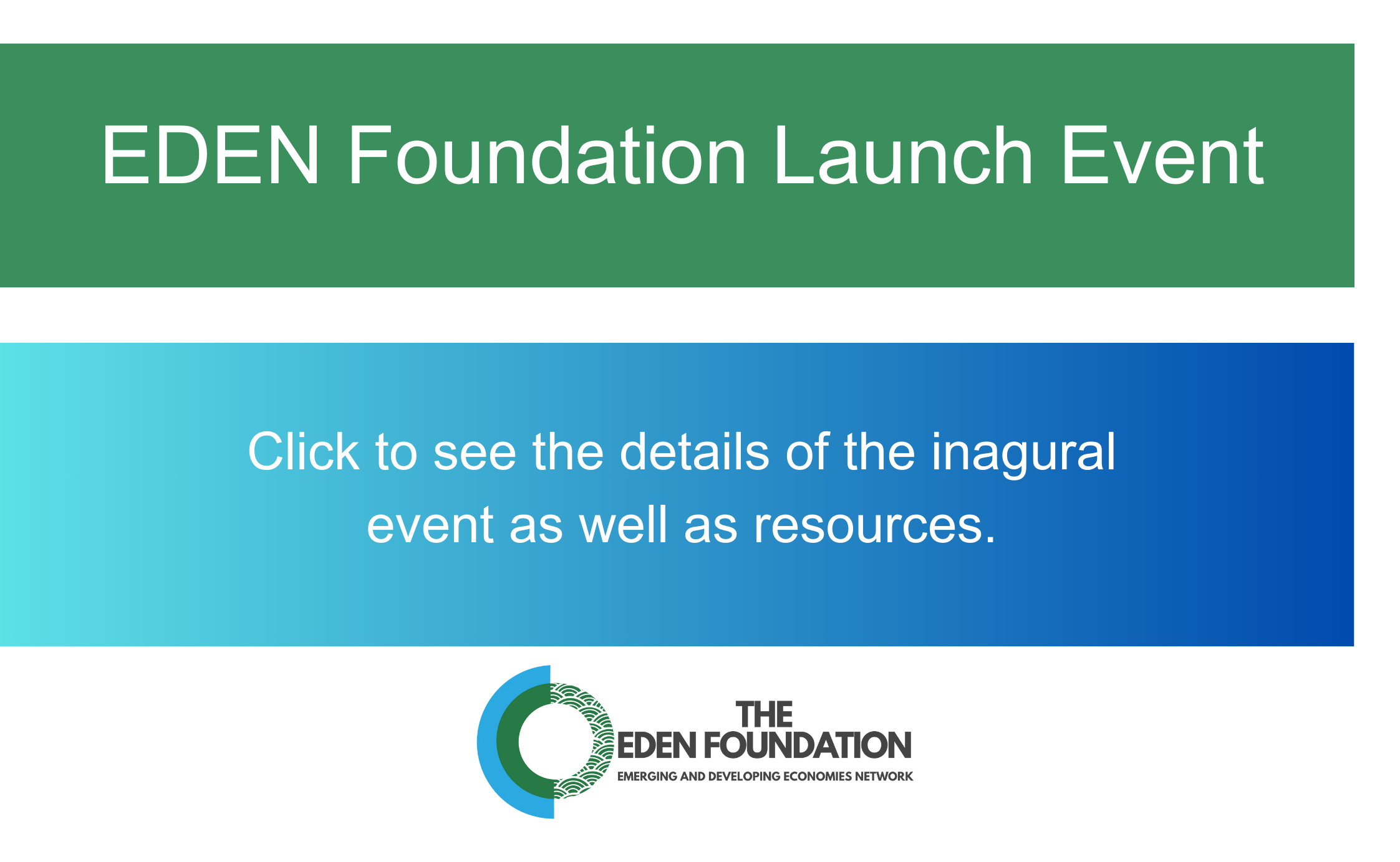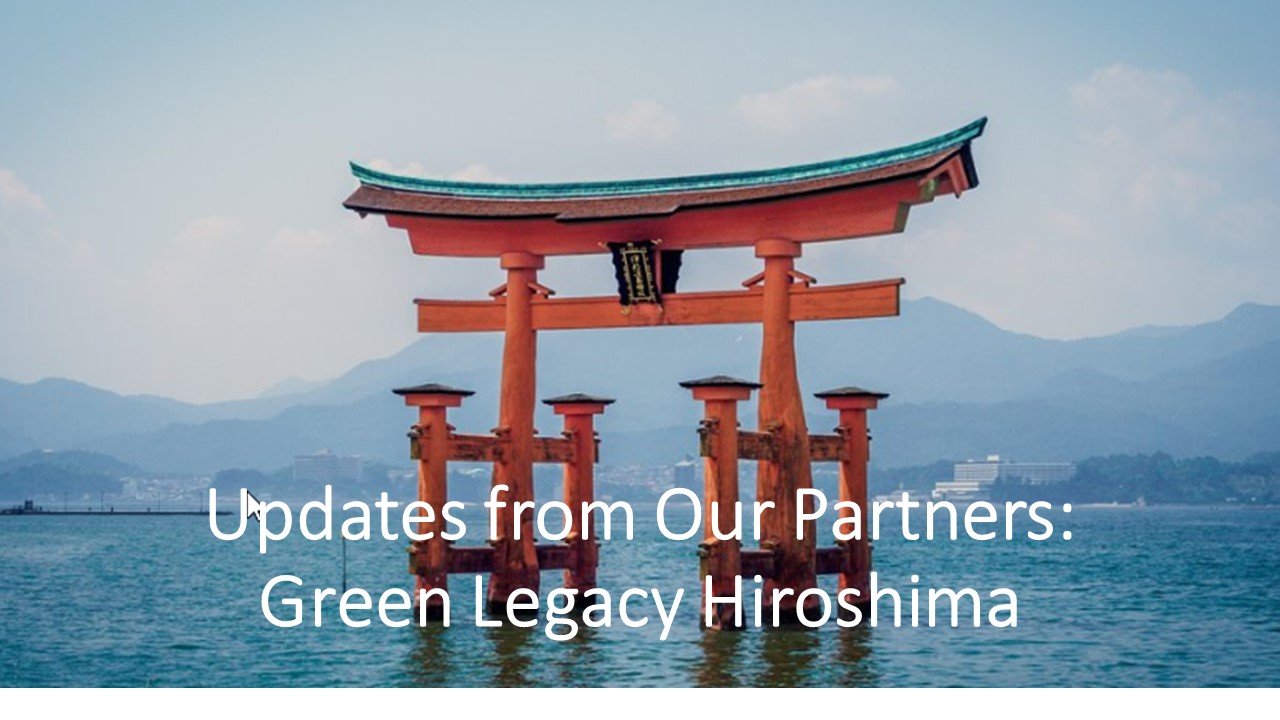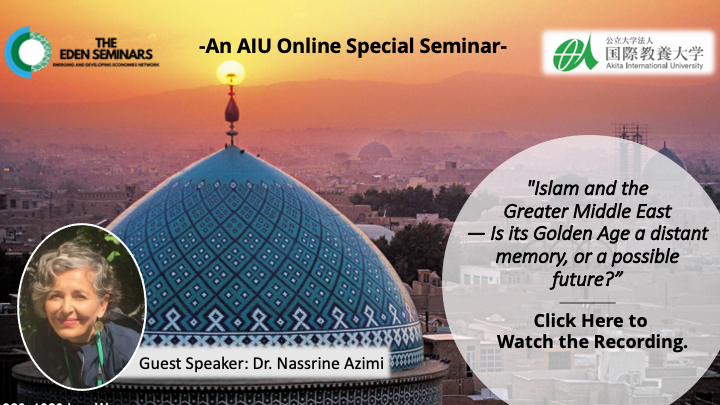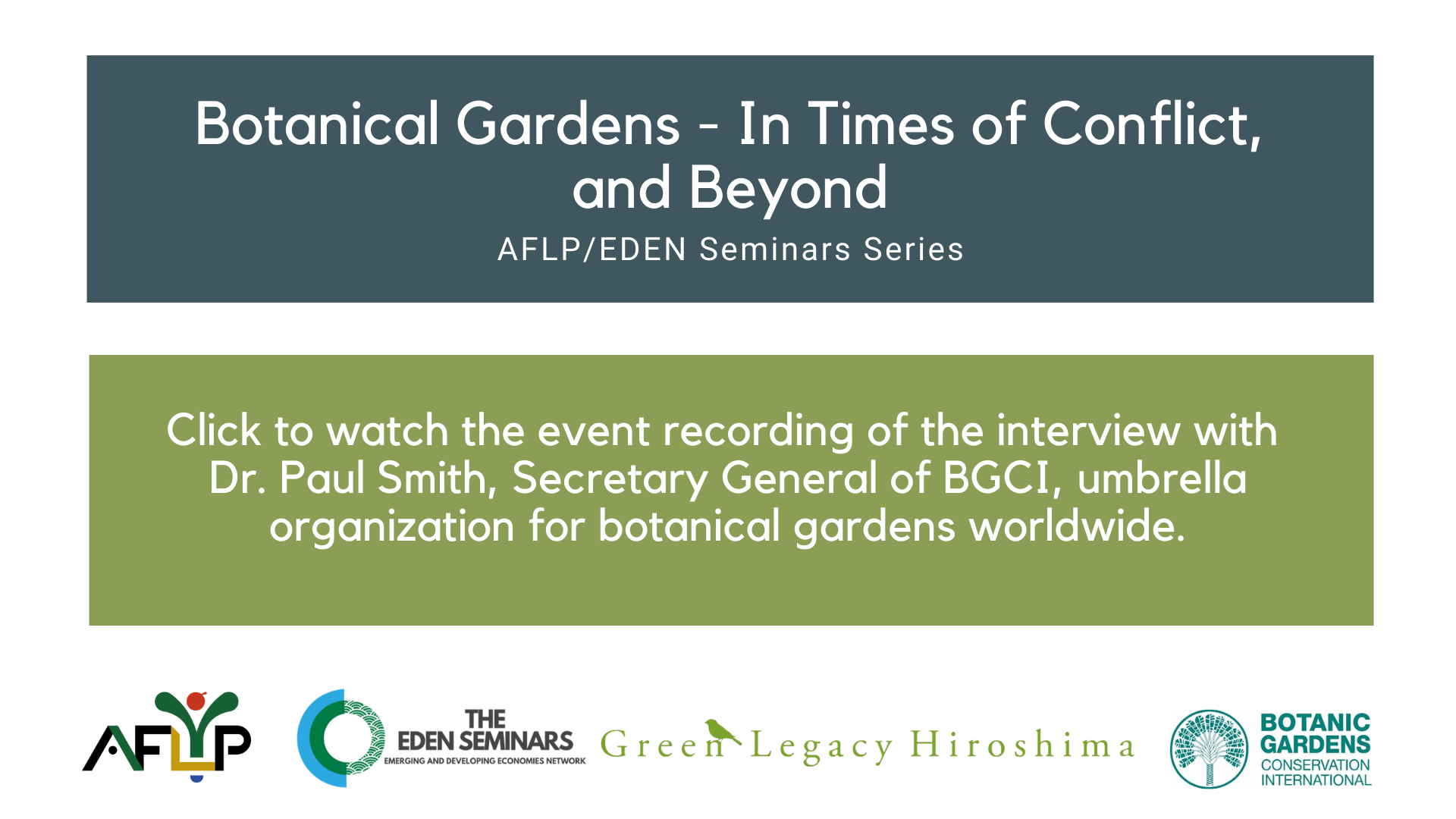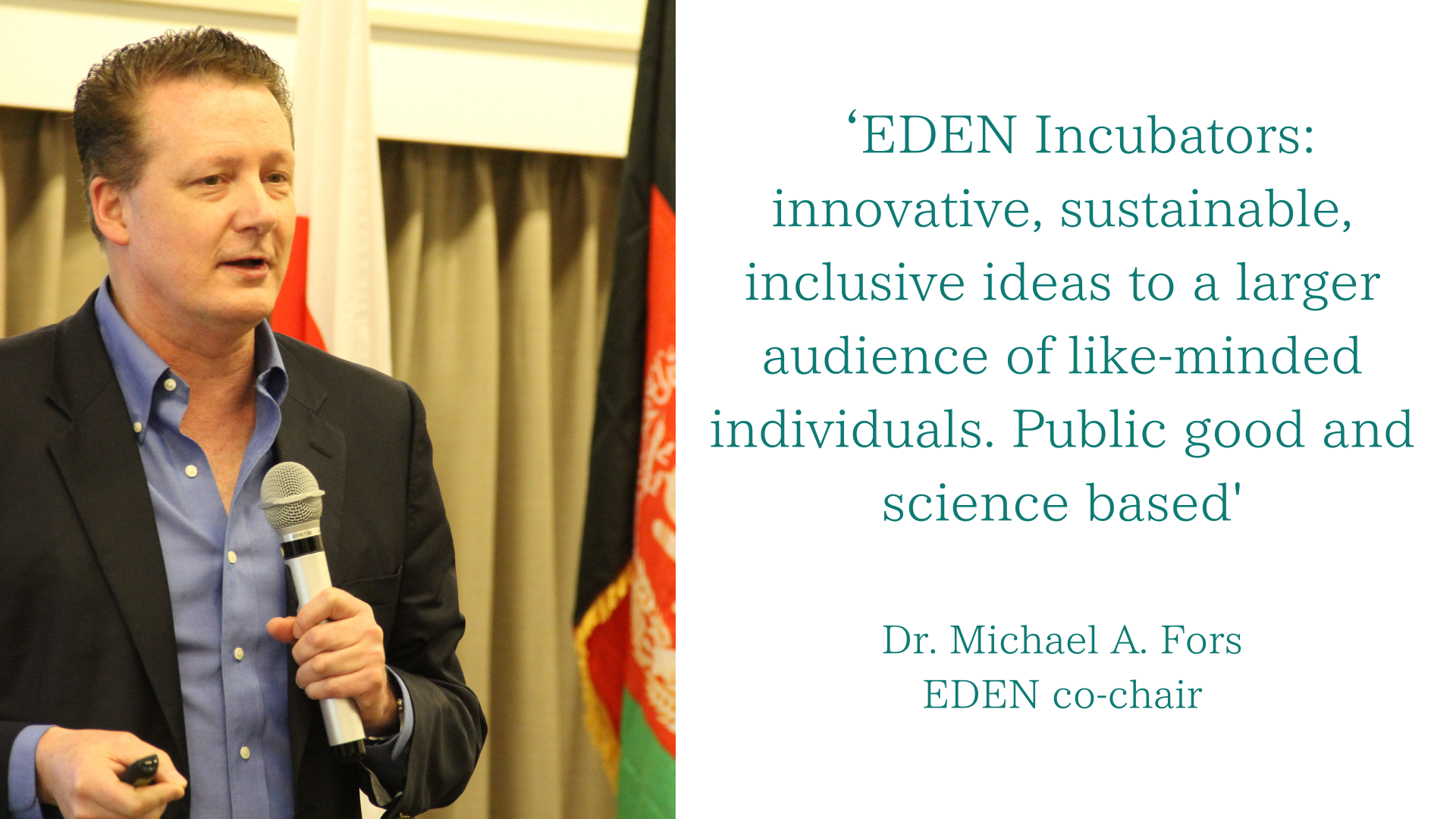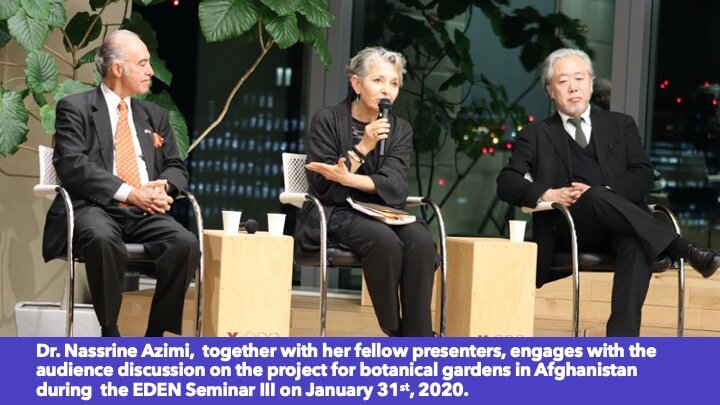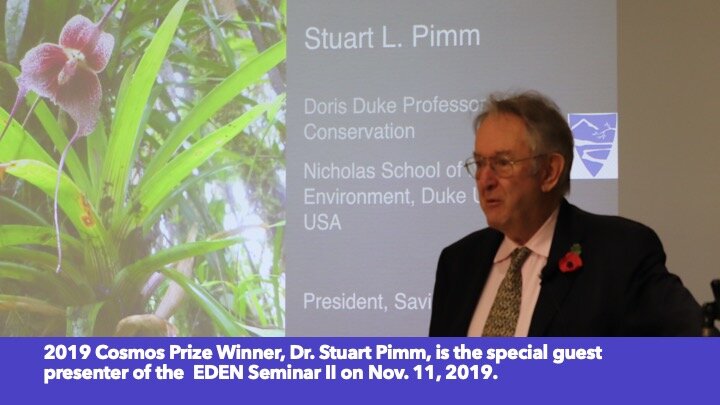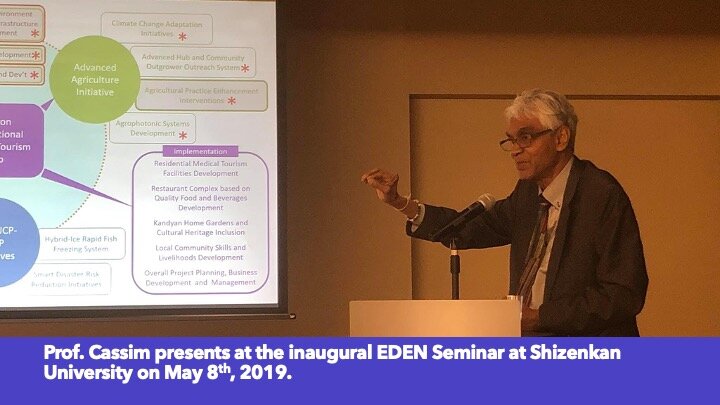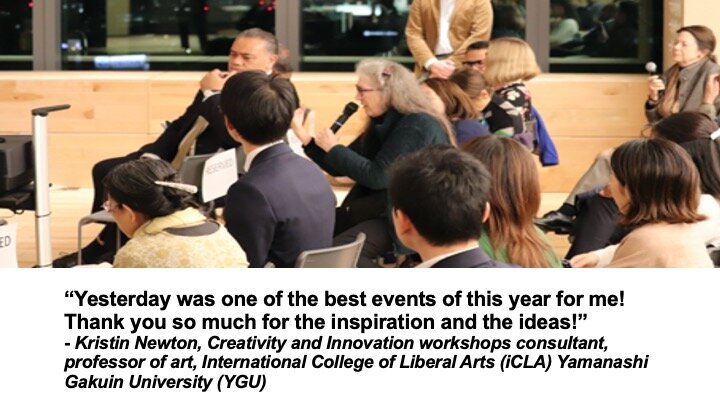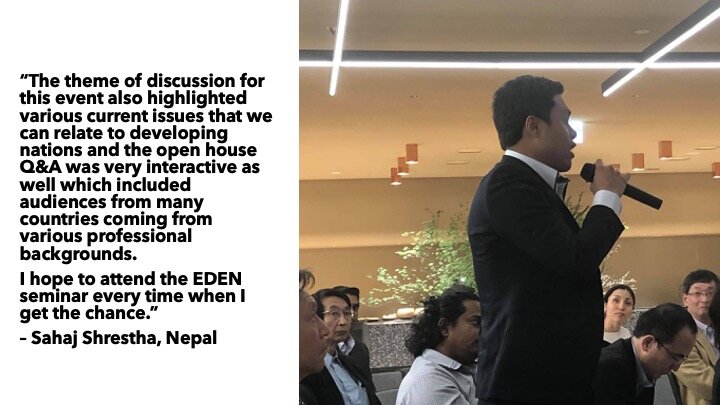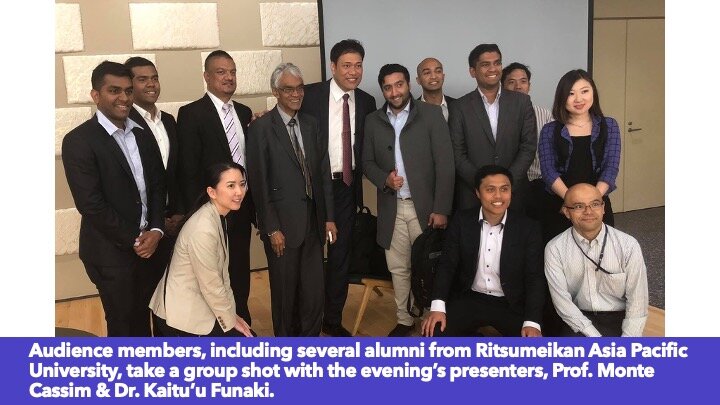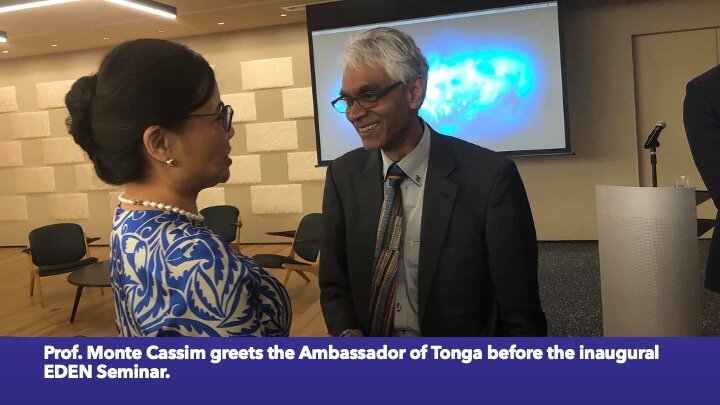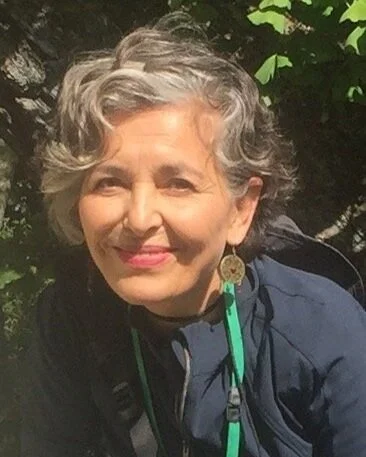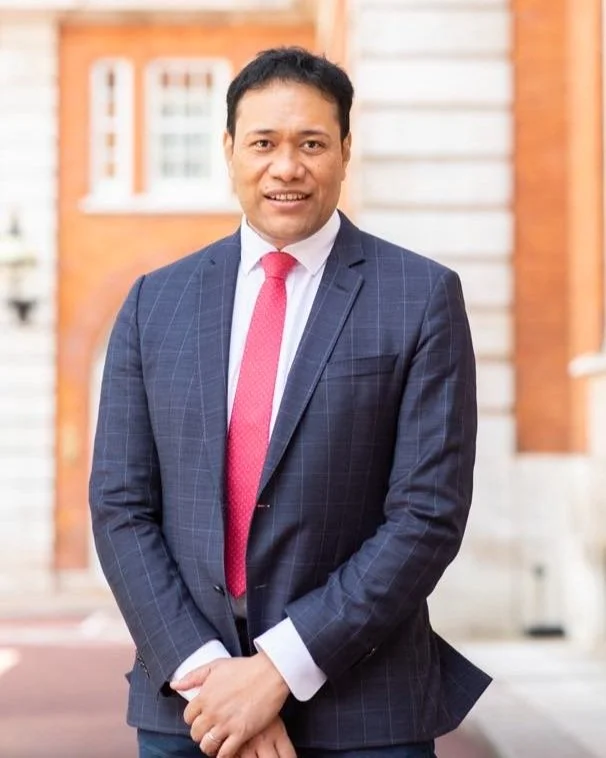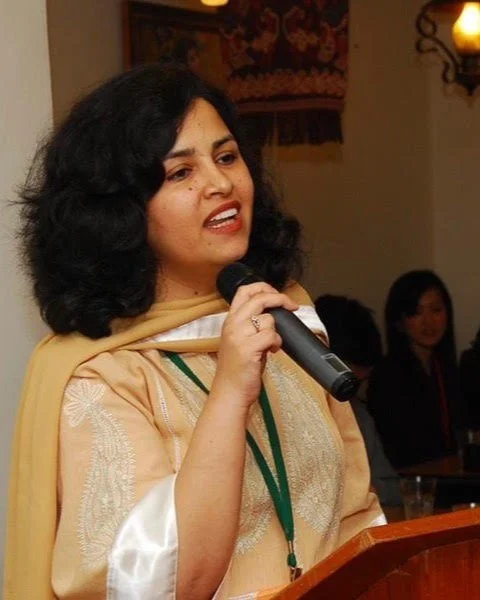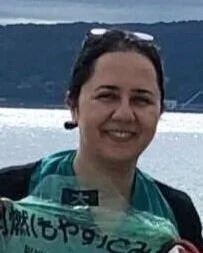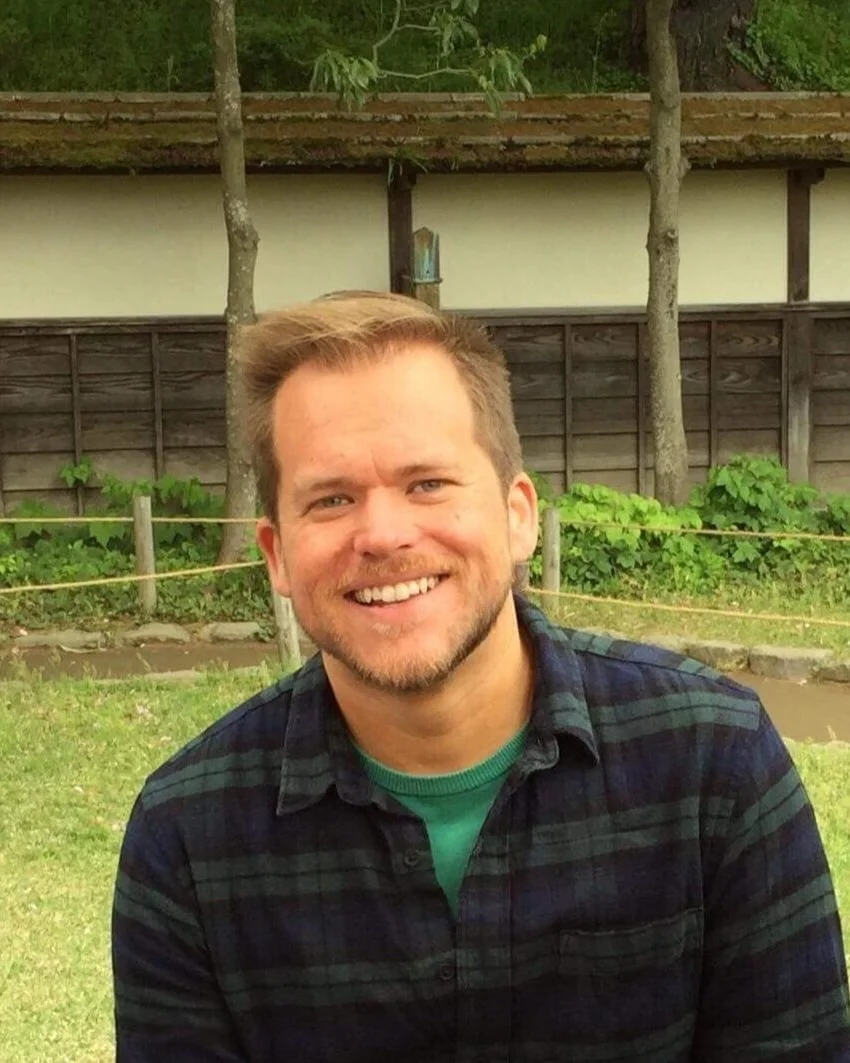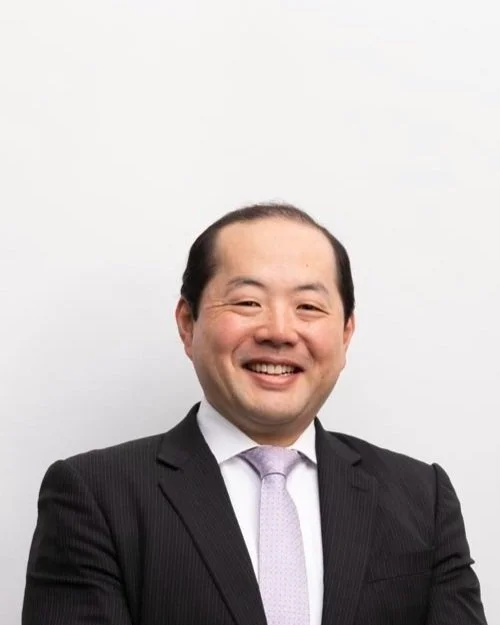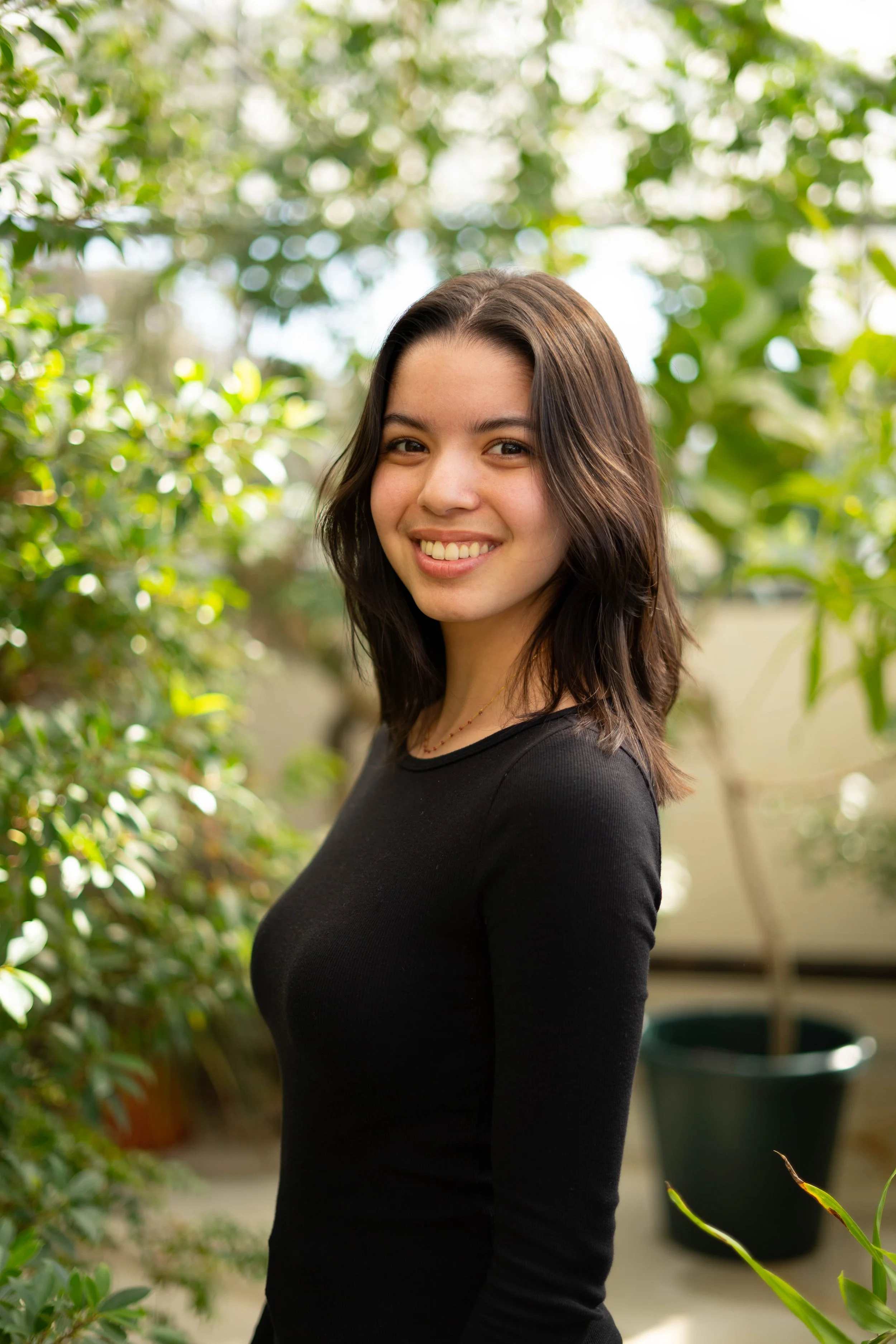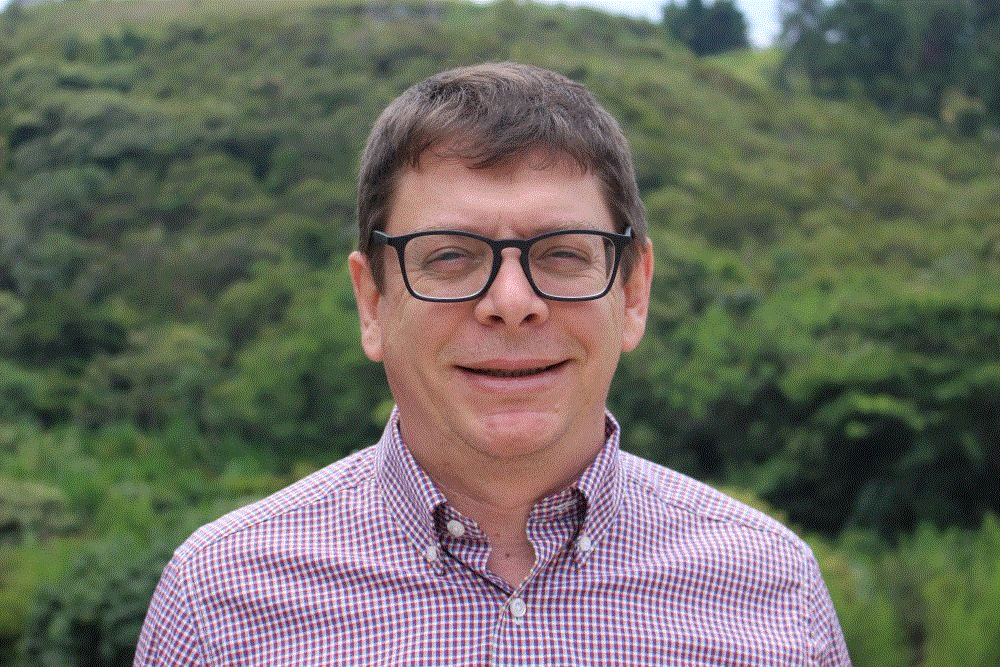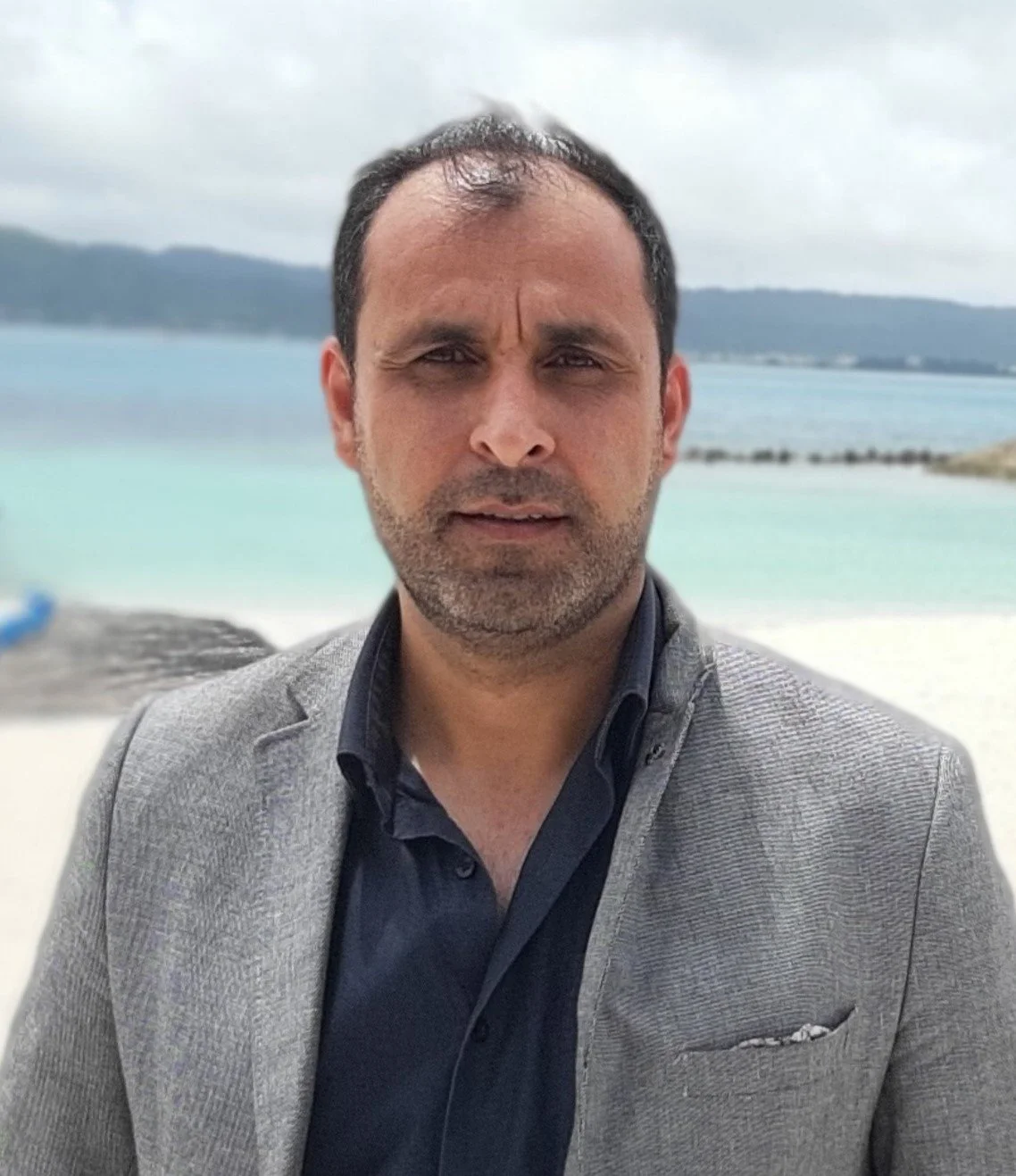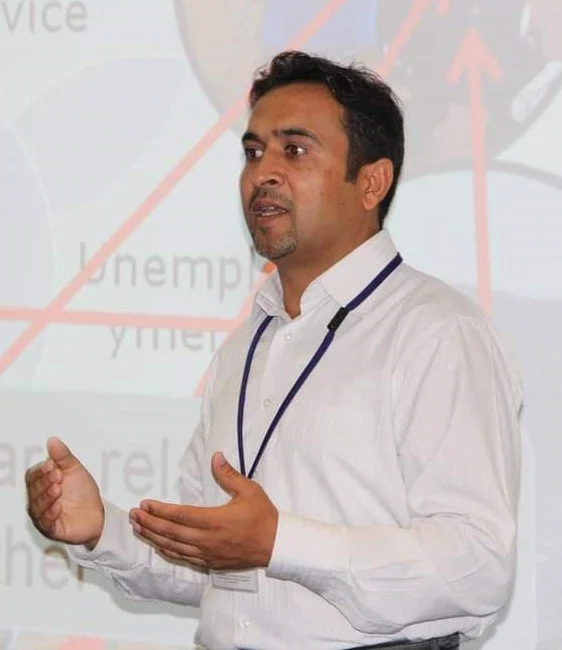Background
The EDEN (Emerging and Developing Economies Network) Foundation is a Japan-based association that aims to provide a platform to debate ideas on alternatives to development aspirations of emerging and developing economies.
EDEN members share experience studying or working internationally and in Japan, their perspectives global in outlook while also anchored in the know-how, systems and “mottainai” culture of Japan. Building on the experiences and lessons learned throughout the pilot phase of the original EDEN, the Foundation will continue a multi-disciplinary approach to exploring solutions to problems of poverty, inequality, violence, environmental degradation and cultural alienation. It will do so by:
Strengthening, with seminars, roundtables and other public fora, a platform to debate new ideas and initiatives about development through the lens of scientific, technological, cultural and social innovation, sustainability and reciprocity (The EDEN Seminars);
Creating a mentoring network to advise and support innovative young researchers and entrepreneurs with good ideas in EDEN’s thematic areas of focus, most notably from developing countries of the Asia-Pacific region (The EDEN Incubators)
Supporting and nurturing any other initiatives emerging from the preceding, whether by individual EDEN members or group of Members.
Thematics/Areas of Focus /Beneficiaries
EDEN Foundation will focus on ecology, economy and sustainability (SDGs in general), development with/vs. preservation of culture/tradition, and on the societal impacts of science, technology and social innovation. The primary region of focus will be on emerging and developing economies of Asia/Pacific and the Silk Road communities.
With regard to beneficiaries the EDEN Foundation will continue the principles of the original EDEN, namely prioritizing beneficiaries from among social entrepreneurs, young innovators, researchers, scholars and public service NPO leaders, in particular from developing and emerging economies.
Past Events
The EDEN Foundation Team
Names in alphabetical order
Nassrine Azimi
Chair
Nassrine Azimi is coordinator of the Green Legacy Hiroshima (GLH) Initiative (http://glh.unitar.org), a global campaign she co-founded in 2011 to disseminate and plant worldwide seeds and saplings of the hibakujumoku, trees that survived the 1945 atomic bombing of Hiroshima.
Dr. Azimi spent her career at the United Nations Institute for Training and Research (UNITAR), in Geneva, New York and Hiroshima, designing and leading teams implementing training programs. She was one of the principal instigators of the Singapore Conference Series on Peace-keeping, and the original coordinator for UNITAR’s environmental portfolio. She has a BA in political science from the University of Lausanne, an MA in international relations from the Geneva Graduate Institute of International Studies, a second MA in urban studies from the School of Architecture, University of Geneva, and a doctorate in cultural studies from the Graduate School of Integrated Arts and Sciences, Hiroshima University. She was a visiting scholar at New York’s Columbia University and at the University of California in Los Angeles/UCLA, and a member of the International Scientific Advisory Board (ISAB-COOP) of the Swiss Federal Institute of Technology (EPFL). She has been an adjunct professor at Doshisha Women’s College, a visiting professor at Hiroshima Shudo University and a Research Fellow at the San Diego Botanic Garden, part of efforts to bring botanic gardens to post-conflict and least developed countries.
She has written and published extensively, notably on UN peacekeeping and peace-building (co-edited with Chang Li Lin), on post-conflict reconstruction, environmental and cultural governance, and Asia. Her 2015 book ‘Last Boat to Yokohama’ (co-authored with Michel Wasserman) was about Beate Sirota Gordon, a prominent figure in Japan. In 2019 she published ‘The United States and Cultural Heritage Protection in Japan (1945-1952)’ and more recently she co-edited (with Humaira Khan-Kamal) ‘The UNITAR Hiroshima Fellowship for Afghanistan — An Anthology’ released in April 2023. In 2019 she was one of EDEN’s original co-founders.
Address Hiroshima, JAPAN
Monte Cassim
Co-Chair
Monte Cassim was appointed President of Akita International University in 2021. Prior to this he was President and Trustee of Shizenkan University, a Postgraduate Professional University in Leadership and Innovation where he also taught Science and Technology Innovation.
He is also Professor Emeritus and Emeritus Executive Trustee of Ritsumeikan Trust, where he was Vice-Chancellor (2004-2012), and President of Ritsumeikan Asia Pacific University (2004-09). He is on the Governing/Advisory Boards of several leading Japanese universities and think-tanks, including the Okinawa Institute of Science and Technology, the Nara Institute of Science and Technology, the National Institute of Advanced Graduate Studies, Sokendai, Kyushu University, as well as the Vietnam-Japan University.
Professor Cassim was a researcher at the Japan Center for Area Development (JCADR) in 1974, and from 1980 entered Mitsui Construction Corporation’s Design Division. From 1985 he worked for the United Nations Center for Regional Development (UNCRD), where he was Coordinator of the Industrial Development Unit and the Urban Development and Housing Unit, as well as the Strategic Assistance Program for Latin America and Indonesia. He was seconded from UNCRD to the Social Infrastructure Division of the Asian Development Bank from 1986-1987 to work on a joint program on urban development for impoverished communities.
His professional expertise and interests are wide-ranging, covering Architecture, Urban Engineering, Industrial Policy, Conservation Biology and Health, Environment and Life Science, with his research focus on developing “earth- and human-friendly” technologies. He has published and lectured extensively and remains a “parish priest” proselytizing for Sustainability Science and “Inclusive Innovation”, a concept he advocated at the 2016 G7 Science and Technology Ministers’ Meeting. He has strived to promote science and technology partnerships between Japan and emerging economies, epitomized by the Sri Lanka Innovation Platform (J-SLIP), which has incubated 20 propulsive projects since 2016, covering many of the 17 UN SDGs. In 2019 he was one of EDEN’s original co-founders.
Address Akita, JAPAN
Michael A. Fors
Co-Chair
Michael A. Fors is chairman of the Board at the United Nations Institute for Training and Research’s Prosperity Division, leading United Nations programs for post conflict and developing nations, ensuring that the world’s most vulnerable are not left behind, and is dedicated to accelerating progress to Sustainable Development Goals.
Dr. Fors has led development for functional divisions and business units at Boeing, systematically developing workforces to achieve business strategies. His team also worked to digitally transform the Boeing business, vital as the 4th industrial revolution accelerates and reshapes the world of work with new technologies. Before Boeing, he was an Executive Leader at Microsoft. Michael led a P&L comprised of 350 ex-CIO consultants, who digitally transform Microsoft customers, and also led a business strategy team that worked with divisional Presidents to improve product development and business performance of the Windows, Office, and Xbox divisions. Before Microsoft, Dr. Fors served as Chief Learning Officer of Intel University. He is an adjunct professor at Stanford University, Columbia University, and the University of Washington, teaching innovation, entrepreneurship, the future of work, and leadership/executive development.
He has been a representative of the World Economic Forum, the Global Engineering Deans’ Council, ReWork America, & the International Federation of Engineering Education Societies.
Address Seattle, WA, USA
Kaitu’u ’i Pangai Funaki
Kaitu’u ‘i Pangai Funaki is currently the Political Head, Pacific Region, Governance and Peace Directorate at the Commonwealth Secretariat in London, United Kingdom. He was among the first batch graduates of Ritsumeikan Asia Pacific University (APU) with 10 years of professional experience in university administration and international marketing of Japanese higher education.
Dr. Funaki holds an MBA in International Marketing and Business and a PhD degree in Asia Pacific Studies (Politics and International Relations). He was the founder of the Dignified Pacific (DPI) in 2018, and co-founded the Dignified Professional Network (DPN) in 2021, based on his relational theory of Reciprocity and Generosity. He is dedicating his life as a Steward guarding the Dignity of Oceania with the goal of rekindling this dignity through the transformation of self-perceptions. He is working with individuals and organizations on similar wavelengths to empower talented young leaders around the world and supporting them in identifying traditional knowledge to be redefined and transformed for the next generation. In 2019 he was one of EDEN’s original co-founders.
Address London, UK
Sharapiya Kakimova
Sharapiya Kakimova is in charge of international cooperation, multilateral and bilateral, and agreements´ negotiations with foreign institutions related to science, technology and innovation at the National Agency for Research and Development (ANID) of Chile. Dr. Kakimova graduated from the Kazakh State Polytechnic Institute in 1993 as a system engineer.
Dr. Kakimova obtained a Master of Arts degree in the field of international relations and later her Ph.D. on Peace Studies from Hiroshima University with specific focus on public administration and its reform in post conflict countries in general and in Afghanistan in particular. She worked in various governmental institutions of Kazakhstan for six years and was responsible for external aid coordination. Dr. Kakimova joined the United Nations Institute for Training and Research (UNITAR) first as an intern, in 2002 and in 2003, and then as a Training Assistant at UNITAR’s Hiroshima Office from 2004 to 2009. From 2011 to 2013, she held teaching positions at Los Lagos University of Chile. Dr. Kakimova´s research interests are capacity building, international relations, conflict resolution and governance.
Address Santiago, CHILE
Humaira Khan-Kamal
Co-Chair
Humaira Khan-Kamal, is CEO of a health-care company in the United States. She is a former UNITAR New York Office staff, was team leader for the Afghanistan Fellowship Programme, the design and implementation of which she spearheaded. She also led the research and development of several training programs in international trade, public-private partnerships for sustainable development, and policy issues in information and communication technologies at part of the New York Office.
Prior to her work with UNITAR she worked as the national marketing/fund-raising manager with a non-profit project to set up the national cancer care hospital in Pakistan – Shaukat Khanum Memorial Cancer Hospital & Research Center.
Khan-Kamal was one of the co-founders and coordinators of the Afghan Fellowship Legacy Projects (AFLP), created to distill the lessons learnt from the 2-decades-long UNITAR Hiroshima Fellowship for Afghanistan, and channel the experiences and knowledge of this worldwide community towards future innovative and sustainable international development assistance initiatives. As one of the AFLP initiatives she co-edited (with Nassrine Azimi) ‘The UNITAR Hiroshima Fellowship for Afghanistan — An Anthology’ released in April 2023.
Address Phoenix, AZ, USA
Rama Kannan
Rama Kannan is an Executive and Leadership Coach and has been coaching leaders in Corporates and the Social sector for over 10 years, including UN leaders globally through UNSSC. She also teaches Social Entrepreneurship and is on the Board of two Impact funds and a listed company.
Previously she was a senior Strategy and Marketing professional for multinational companies in India and Asia Pacific for over 16 years. She was a Mentor from 2010 in the UNITAR Afghanistan Fellowship Programme, which was a catalyst to her becoming a Coach and is one of the authors of the Afghan Fellowship Legacy Projects book, released in 2023.
She has an MBA from NUS Singapore and has Master Coach credential (MCC) from International Coaching Federation.
Address Bangalore, INDIA
Faezeh Mahichi
Faezeh Mahichi is Associate Professor at Ritsumeikan Asia Pacific University (APU), Japan. Her journey from Nano-world to Macro- Reality started from pursuing her master and PhD studies in the field of nanotechnology in Tokyo Institute of Technology (Tokyo Tech), Japan to recent years working as a researcher and educator in environmental studies and circular economy in APU, as a university hosting students from more than 90 nationalities.
Dr. Mahichi’s teaching and research interests are on the importance of research and education of environmental systems in a holistic manner in order to reach the state of sustainability. Currently, she is studying the impacts of different practices, technological implementations and developments on the natural environment. She is interested in the study of traditional knowledge and practices, circular economy, sustainable development and how to decrease humanity’s ecological footprint, pollution and depletion of natural resources through environmental education and increase of environmental awareness. In 2019 she was one of EDEN’s original co-founders. She enjoys teaching, researching and gardening in the coastal city of Beppu.
Address Beppu, JAPAN
Cody Marschalk
Communications Coordinator
Cody Marschalk works for the University of North Georgia’s Center for Global Engagement. He is an international educator with 15+ years of experience working with international student populations.
Cody has a passion for communication and intercultural exchange and his ikigai is to bridge cultural divides and help foster campus environments where hospitality, inquisitiveness, and inclusivity thrive. His experiences in the field are multifaceted and multidimensional, having worked in international student programs, academic affairs, and admissions and recruitment for universities across the globe. Cody graduated from Auburn University in 2011 with a Bachelor of Arts in English Literature and a minor in Asian Studies. He later returned to acquire his Master of Education in Higher Education Administration, specializing in International Student Issues and Global Education, while simultaneously acquiring his master’s certificate in Teaching English as a Second Language (TESL) in 2016. After joining the Japan Exchange & Teaching (JET) Program to expand his international experience in 2016, he taught English in Japanese high schools across Fukushima Prefecture. From 2018-2022, he worked in the international student affairs office at Shizenkan University in Tokyo, where he joined the EDEN team as Communications Coordinator for its inaugural seminar in 2019. Cody currently calls Atlanta, Georgia home. In his spare time, he enjoys tasting new cuisines via the region’s diverse food scene and hiking the rolling foothills of the Appalachian Mountains with his wife. In 2019 he was one of EDEN’s original co-founders.
Address Atlanta, GA, USA
Teruma Naito
Teruma Naito is a partner at an international law firm in Japan. His main focus is on international and domestic project finance, cross-border finance, corporate and equity finance transactions in the area of power, water, oil and gas, infrastructure, shipping, export credit financings and insurance.
He has extensive experience working for a magic circle law firm in England and Tokyo and has a broad range of experience in cross-border financings and corporate matters in Asia, Europe, the Middle East, Africa and South America.
He has an LLP from King’s College, London, and an BPP from Law School London. Since 2022 he has been a recipient annually of the Legal 500 Asia Pacific Award, and is a member of the Law Society of England and Wales, and of the Tokyo Bar Association, and has published numerous articles in his fields of expertise. He has been part of the UNITAR World Heritage Series in Hiroshima, and previously led the pro-bono legal team at AMT that continues to provide support and guidance to The EDEN Foundation.
Address Tokyo, JAPAN
Taiga Nishimura
Taiga Nishimura is Project Assistant at the United Nations Institute for Training and Research (UNITAR). At the Hiroshima Office of the institute, he serves for the Program for Global Human Resource Development for Peacebuilding and Development that is commissioned to Hiroshima University by the Ministry of Foreign Affairs of Japan, implemented in partnership with UNITAR.
Before rejoining UNITAR in July 2024, Taiga was a Program Coordinator at Hiroshima Peacebuilders Center (HPC). His professional career started at UNITAR where he has been a Research Assistant for the Afghan Fellowship Legacy Projects (AFLP) and the Green Legacy Hiroshima (GLH) Initiative of the Hiroshima Office, and Program Assistant for the Nuclear Disarmament and Non-proliferation and the Women's Leadership in Tsunami-based Disaster Risk Reduction programs of the Division for Prosperity. As part of the AFLP team Taiga was deeply involved in the Botanical Gardens Network initiative, and was a member of the editorial team for the AFLP book, published in 2023. Taiga holds a Master of Science degree in International Development with Conflict and Humanitarian Action from the University of Bath, the United Kingdom. He also obtained a Bachelor of Arts degree in English from Hiroshima Shudo University.
Address Hiroshima, JAPAN
Ari Novy
Co-Chair
Dr. Novy is a plant biologist with a wide range of expertise in plant science and education. Prior to joining SDBG he was Chief Scientist at the Leichtag Foundation, and before that Executive Director of the United States Botanic Garden in Washington, D.C.
As such he also sat on the Executive Leadership Team of the U.S. Architect of the Capitol, the federal agency responsible for the management and upkeep of the U.S. Capitol Campus, including the U.S. Botanic Garden, U.S. Capitol, Library of Congress and Supreme Court.
He is the author of numerous peer-reviewed scientific papers and the founding co- chair of the Food and Agriculture section of the American Public Gardens Association. He has served on task forces and advisory panels for diverse groups including the White House Council on Environmental Quality, the Cornell Alliance for Science, Botanic Garden Conservation International, the Garden Club of America, the European and Mediterranean Plant Protection Organization, and many others.
Address San Diego, CA, USA
Sophie Qano
Sophie Qano currently works as the Oberlin Shansi Fellow. She splits her time between UNITAR, Green Legacy Hiroshima, and ANT-Hiroshima. At UNITAR, she is on the Leadership and Inclusion Team, she is part of the Green Legacy Hiroshima Secretariat, and at ANT-Hiroshima, she manages English communications.
Sophie graduated with degrees in Psychology and Environmental Studies and a concentration in Peace and Conflict Studies from Oberlin College. Her research interests include the intersection between smartphone addiction and connectedness to nature, comparing sustainability initiatives in different countries, and pro-environmental behavior change in cross-cultural settings.
Address Hiroshima, JAPAN
Saeeda Razick
Saeeda Razick is completing her bachelor’s degree in mechanical engineering at the Universiti Teknologi Malaysia in Johor Bahru. She was a UNITAR trainee and joined the Green Legacy Hiroshima Secretariat Team. She mainly handles the Partners in Profile series and outreach for GLH. In 2019 she was one of EDEN’s original co-founders.
She was the Deputy Head Prefect in high school and volunteered with leading community service organizations within school such as the United Nations and Interact Clubs. The community service projects that came along with such volunteering allowed her to understand the depth of the unequal distribution of basic resources as she traveled to many parts of the island. These experiences contributed to her current dream; which is to be a part of bridging this gap and help develop her country through science and technology. In her free time she enjoys hiking and pottery.
Address Johor Bahru, MALAYSIA
Vladimir Rouvinski
Dr. Vladimir Rouvinski is a professor in the Department of Political Studies and director of the Laboratory for Politics and International Relations (PoInt) at Icesi University in Cali, Colombia. In addition, he is a specially appointed professor at Hokkaido University in Japan.
Vladimir's main area of expertise is Asian and Russian relations with Latin America and the Caribbean, and for over 10 years he was Chair of the Asia and the Americas section at the Latin American Studies Association (LASA). Before joining Icesi in 2007, Vladimir worked with educational and research institutions in Russia, Japan, and Colombia. He has also held research positions at the Woodrow Wilson International Center for Scholars in Washington, DC, the Georg Eckert Institute in Braunschweig, Germany, and Florida International University in Miami, FL.
Among his most recent books are (co-authored) “Rethinking Post-Cold War Russian-Latin American Relations” (Routledge, 2022) and “Between East and West. State, Nation, and Conflict in Contemporary Ukraine” (in Spanish, Tirant lo Blanch, 2022).
Address Cali, COLOMBIA
Najib Sabory
Najib Rahman Sabory is a sustainable energy expert. Since graduating from the electrical engineering department at Kabul University in 2001, he has been engaged across the board with academic, industry, and private sectors. From 2002 until 2022 he was an associate professor at the Engineering School of Kabul University, where in parallel he led a number of projects, committees, and initiatives for the energy industry and private sector.
His role as the member and chairman of Afghanistan Renewable Energy Union (AREU) board of directors since 2017 was pivotal in developing and supporting the energy sector of Afghanistan.
Dr. Sabory currently works as a senior manager at the planning and strategy department of the largest power producer in Japan, JERA.co.Inc, where he is engaged in planning and promoting decarbonization strategies and efforts. He is also engaged as Specially Invited Professor with the International University of Japan (IUJ), supporting the Management of Power Utilities ( MPU) program. Dr. Sabory completed a master’s degree in 2013 in Sustainable Energy from A. James Clark School of Engineering at the University of Maryland College Park. He got an MBA in 2014 from World Wide Science Academy in Malaysia. In 2022, he completed his PhD in Sustainable Energy Politics and Policies at the University of the Ryukus, Japan. He is the author of more than 30 academic publication ranging from books, journal articles, and conference papers. He was awarded a UNITAR (United Nations Institute for Training and Research) fellowship in 2007 for a period of seven months, through which he learned advanced concepts in project management, leadership and change management. He continued in this program for 2008 and 2009 cycles, this time as coach and resource person, and was one of the three focal points for UNITAR’s Afghan Fellowship Legacy Projects (AFLP) and its Botanical Gardens Network component. He is one of the authors of the AFLP book, published in 2023.
Address Tokyo, JAPAN
Sabahuddin Sokout
Sabahuddin Sokout is the UNITAR Program Coordinator and Focal Point in Afghanistan. Prior to this he was Administration and Finance Officer at the Baz Construction Unit for Rehabilitation of Afghanistan (BCURA) and Liaison Officer of Foreign Affairs in the Academy of Science of Afghanistan. He graduated from the Faculty of Economics of Kabul University in 1997.
His professional background is International Economy, Organizational studies, and change. He has obtained his master’s degree on International Peace and Co-existence from Hiroshima University and his major was Peacebuilding through Economic Development. Mr. Sokout has taken part in many trainings and certified courses on project design, planning, accounting, fraud mitigation and environmental issues. Mr. Sokout joined the UNITAR Hiroshima Fellowship for Afghanistan as a Fellow in 2005, as a Coach in 2006 and 2007, and as an Afghan Resource Person in 2008. He has been engaged for seven years in policy and strategy development with many companies, NGOs, and MSMEs in Afghanistan.
Sokout was the coordinator in Afghanistan for UNITAR’s Afghan Fellowship Legacy Projects (AFLP) and its Botanical Gardens Network component. He is one of the authors of the AFLP book, published in 2023.
Address Hiroshima, JAPAN

